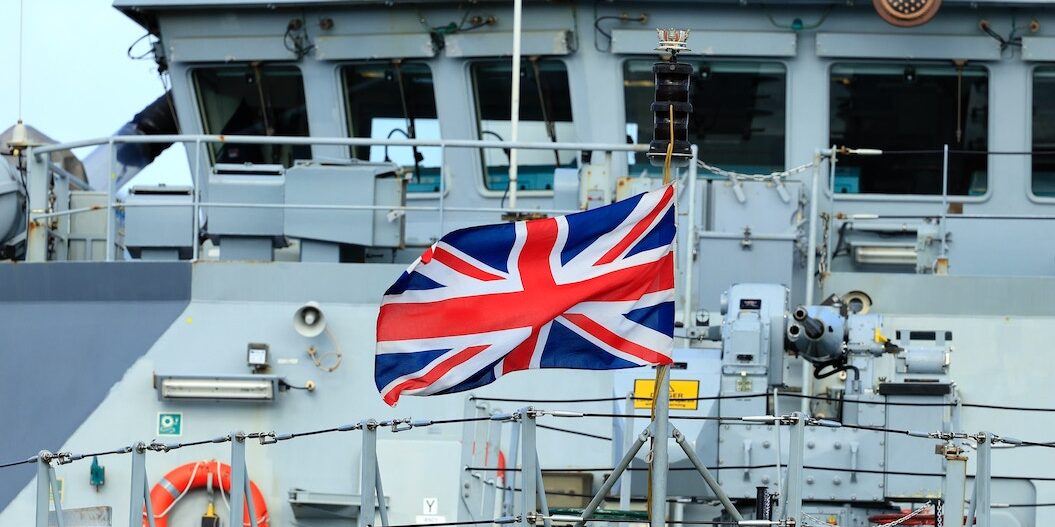
Ireland’s Security Freeloading is a Threat to the West
Today marks the thirtieth anniversary of the Downing Street Declaration – one of the key building blocks of the Northern Irish peace process which led to the Belfast Agreement of 1998. That accord, forged between prime minister John Major and the taoiseach Albert Reynolds, is widely held to be a masterpiece of calculated ambiguity.
In a memorable turn of phrase, the British government acknowledged that it had ‘no selfish strategic or economic interest’ in Northern Ireland – a formula first employed in Ulster secretary Peter Brooke’s Whitbread lecture of 9 November 1990.
To much of Nationalist Ireland, the Green-sounding language was enticing: the British were saying that they had no ‘imperialistic’ reason of State to remain in Northern Ireland. Rather, the essence of the British presence in Northern Ireland were the million British subjects who wished to remain part of the Union.
The implicit message of the Major government to nationalists was as follows: if you can then persuade the Unionists via peaceful means to accept a United Ireland, we will not stand in your way. But three decades on, in dramatically different geopolitical circumstances, does the United Kingdom have a ‘selfish strategic interest’ in Northern Ireland after all?
The Ukraine War and repeated Russian incursions into what used to be called the ‘Western Approaches’ – a Russian live fire exercise in January 2022 was seen off by courageous Irish fishermen – have highlighted the reemerging vulnerabilities of Western equities in the eastern Atlantic.
This clear and present danger is the logical outcome of Russia’s Sodcit operation – a military doctrine advocating sub-threshold warfare against adversaries’ critical infrastructure. As elsewhere in the EU, China constitutes the less acute but more pervasive long-term challenge – entailing the usual footprint of Chinese Communist Party (CCP) overseas activities such as Confucius Institutes in the education sector.
Ireland’s historic line is that it is a small neutral nation which is a long way away – and whose position in the world rests heavily upon its capacity for moral suasion. But the Republic is now on the new front line. Three quarters of all cables in the northern hemisphere pass through Irish waters – and twelve connect the Republic to the UK, in most cases before extending to the Continent. Indeed, Dublin’s strategy for economic growth, not least in financial services, is predicated on digital data transfers along undersea cables.
Ireland is also especially dependent on the international energy market – importing 100 per cent of its oil and 71 per cent of gas; 75 per cent of the Republic’s gas currently flows from the UK via two pipelines. Despite such vulnerabilities, the Irish State remains what it always has been – one of the biggest security freeloaders in Europe. Not even decades of economic success as a ‘Celtic Tiger’ have much budged the invincible, self-righteous neutralism and skin-flintery of successive governments in providing for Ireland’s own defence.
So who does provide that security? Perhaps the deepest secret in contemporary Anglo-Irish intergovernmental relations that it is the UK taxpayer who effectively foots many of the bills. All this obtains despite the rampant post-Brexit Anglophobia of much of the Republic – which, as so often, goes largely unremarked in the UK.
Perhaps unsurprisingly then, when reports emerged last year of a secret deal in place since 1952 between the UK and Ireland permitting the RAF to intercept hostile actors flying in Irish airspace, Dublin denied it. Decades of spending well below 1 per cent of GDP on defence have left Irish forces under-equipped and under-staffed. By the Irish Army’s own admission, it is unable ‘to conduct a meaningful defence of the State’. The Republic does not even possess a primary radar system, leaving it air and sea blind.
These long-standing shortcomings were highlighted by the Commission on the Irish Defence Forces, appointed by the government in 2021. Its findings created a context for Dublin to commit to raising its game – and some halting steps have been taken, such as increasing Irish participation in the EU’s Permanent Structured Cooperation initiative as part of its Common Security and Defence Policy.
However, the gap between aspiration and delivery, to forge a new ‘fit for purpose’ military, remains very wide indeed. A 50 per cent defence spending increase has been pledged – but not till 2028.
Fine Gael/Fianna Fail-led Governments may have fallen massively beneath the level of world events. But that will be as nothing if, as widely anticipated in the coming general election, Sinn Fein becomes the Republic’s largest party – a movement that, in 2022, swept its controversial statements about Russia over the years from its website.
So if Dublin is to be an unreliable partner, how to secure British and Nato interests in today’s Western Approaches? Once again, as in World War II, might Northern Ireland turn out to be the best forward based land platform for discharging that mission – preferable to RAF Lossiemouth in Scotland or RAF Coningsby in Lincolnshire?
In one of Neville Chamberlain’s worst decisions, the UK surrendered three key Treaty Ports in Ireland in 1938 to Dublin – largely to show to Hitler that auld enmities could be overcome by bold concessions. The loss of these operating bases made the subsequent Battle of the Atlantic far costlier – leading to the deaths of thousands of Royal Navy and Merchant Marine sailors.
HMS Ferret, the Royal Navy’s base in Londonderry – the most westerly establishment for convoy escorts and anti-submarine vessels – stepped into the breach.
So, too, did RAF Ballykelly, Co Londonderry and RAF Nutts Corner, Co Antrim – two of the airfields from which Coastal Command and Fleet Air Arm aircraft closed the lethal mid-Atlantic gap. Northern Ireland thus played a significant part in the Allied victory, while the South stayed neutral; 8,000 US servicemen passed through Ferret, a notable component in the emerging Special Relationship. Ferret (later renaned Sea Eagle) and Ballykelly remained open until the 1970s – part of the Nato defence of the Greenland-Iceland-UK Gap during the Cold War.
Their closures were the product of the Denis Healey-era of retrenchment at the Ministry of Defence; and with the outbreak of the Troubles, the Province became more of an Army responsibility, anyhow. But what goes around, comes around. London must once again take a strategic interest in Northern Ireland – but an altruistic and not a selfish one, for the broader good of Western security.
Lord Dean Godson, Director of Policy Exchange and a member of the House of Lords
Note: This article was reproduced with Lord Godson’s permission.

